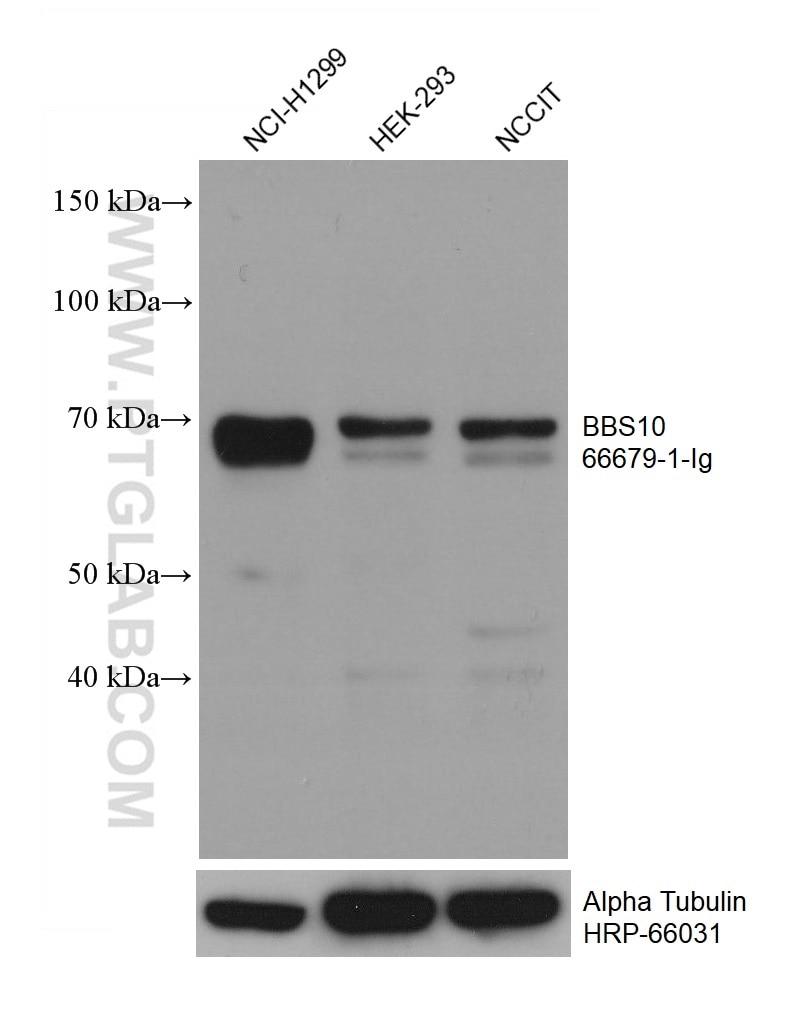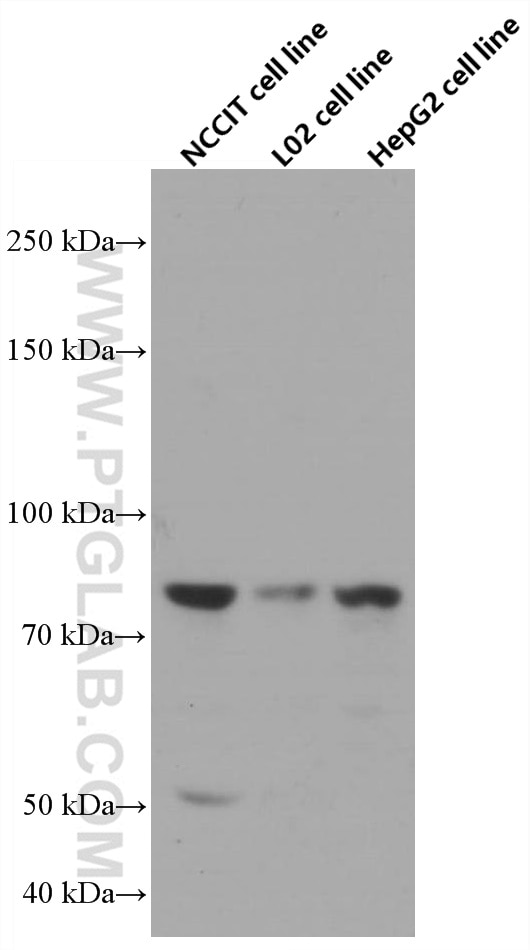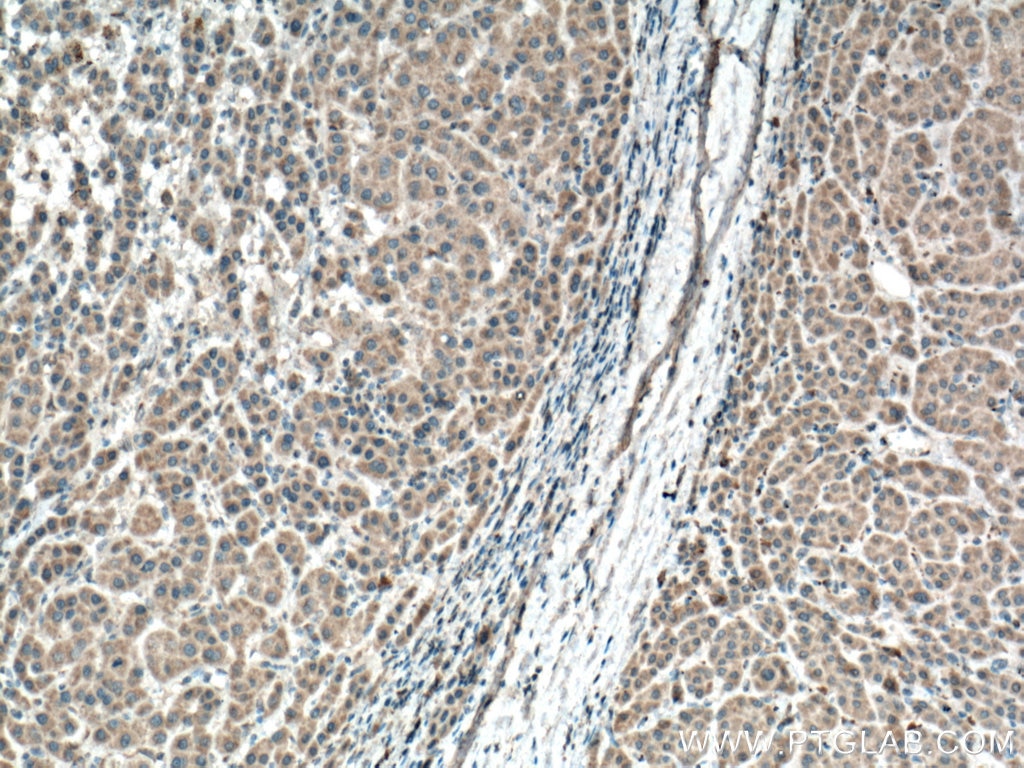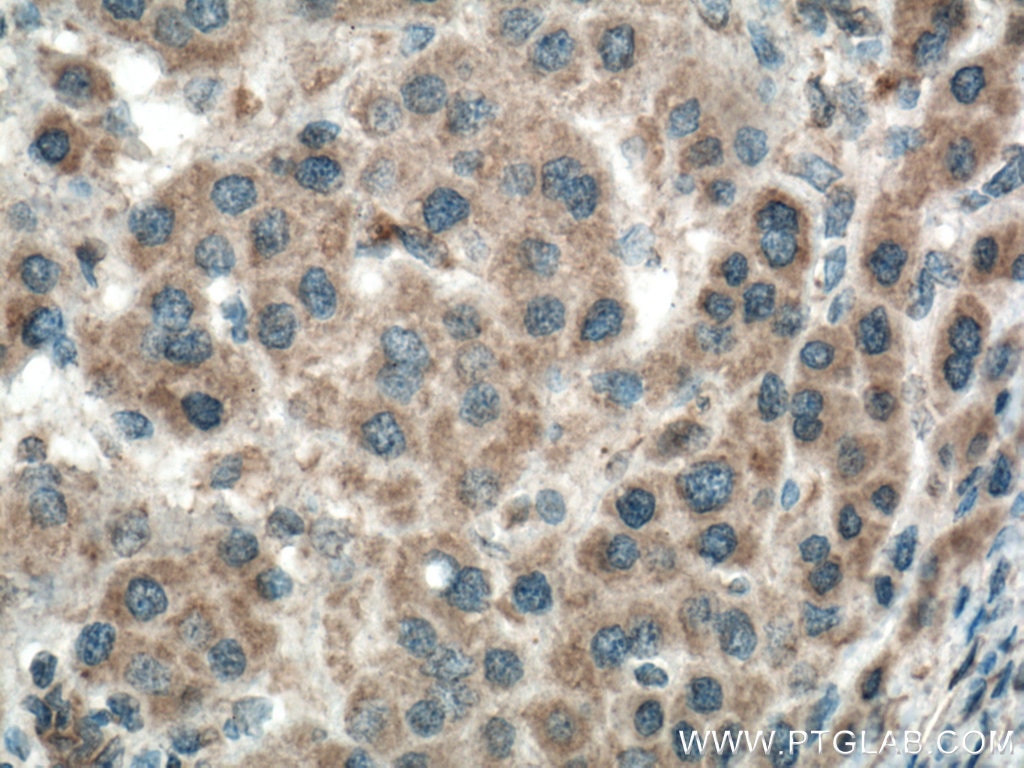Tested Applications
| Positive WB detected in | NCI-H1299 cells, NCCIT cells, L02 cells, HepG2 cells |
| Positive IHC detected in | human liver cancer tissue Note: suggested antigen retrieval with TE buffer pH 9.0; (*) Alternatively, antigen retrieval may be performed with citrate buffer pH 6.0 |
Recommended dilution
| Application | Dilution |
|---|---|
| Western Blot (WB) | WB : 1:1000-1:6000 |
| Immunohistochemistry (IHC) | IHC : 1:150-1:600 |
| It is recommended that this reagent should be titrated in each testing system to obtain optimal results. | |
| Sample-dependent, Check data in validation data gallery. | |
Product Information
66679-1-Ig targets BBS10 in WB, IHC, ELISA applications and shows reactivity with Human samples.
| Tested Reactivity | Human |
| Host / Isotype | Mouse / IgG2b |
| Class | Monoclonal |
| Type | Antibody |
| Immunogen |
CatNo: Ag17960 Product name: Recombinant human BBS10 protein Source: e coli.-derived, PET28a Tag: 6*His Domain: 573-723 aa of BC013795 Sequence: MLPVSCKLPNMGTSQSYLSSSMPAGCVLPVGGNFEILLHYYLLNYAKKCHQSEETMVSMIIANALLGIPKVLYKSKTGKYSFPHTYIRAVHALQTNQPLVSSQTGLESVMGKYQLLTSVLQCLTKILTIDMVITVKRHPQKVHNQDSEDEL Predict reactive species |
| Full Name | Bardet-Biedl syndrome 10 |
| Calculated Molecular Weight | 81 kDa |
| Observed Molecular Weight | 81 kDa |
| GenBank Accession Number | BC013795 |
| Gene Symbol | BBS10 |
| Gene ID (NCBI) | 79738 |
| RRID | AB_2882033 |
| Conjugate | Unconjugated |
| Form | Liquid |
| Purification Method | Protein A purification |
| UNIPROT ID | Q8TAM1 |
| Storage Buffer | PBS with 0.02% sodium azide and 50% glycerol, pH 7.3. |
| Storage Conditions | Store at -20°C. Stable for one year after shipment. Aliquoting is unnecessary for -20oC storage. 20ul sizes contain 0.1% BSA. |
Background Information
BBS10, also named as C12orf58, belongs to the TCP-1 chaperonin family. It is probable molecular chaperone. Assists the folding of proteins upon ATP hydrolysis. As part of the BBS/CCT complex, BBS10 may play a role in the assembly of BBSome, a complex involved in ciliogenesis regulating transports vesicles to the cilia. Involved in adipogenic differentiation. (PMID: 20080638, 19190184) Defects in BBS10 are the cause of Bardet-Biedl syndrome type 10 (BBS10).
Protocols
| Product Specific Protocols | |
|---|---|
| IHC protocol for BBS10 antibody 66679-1-Ig | Download protocol |
| WB protocol for BBS10 antibody 66679-1-Ig | Download protocol |
| Standard Protocols | |
|---|---|
| Click here to view our Standard Protocols |










